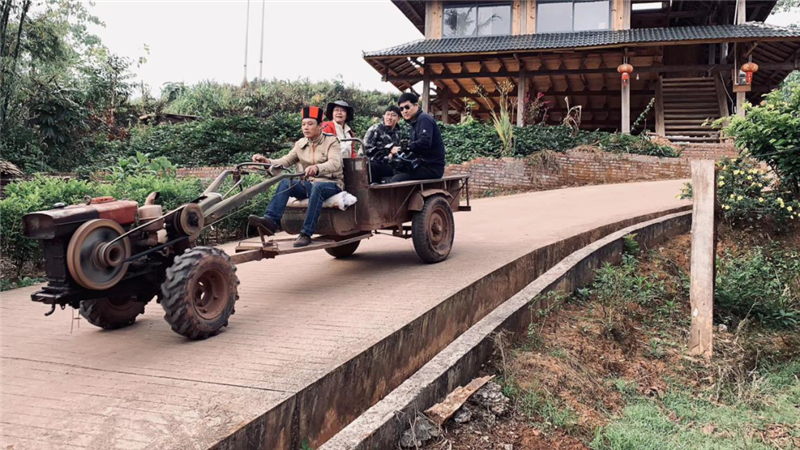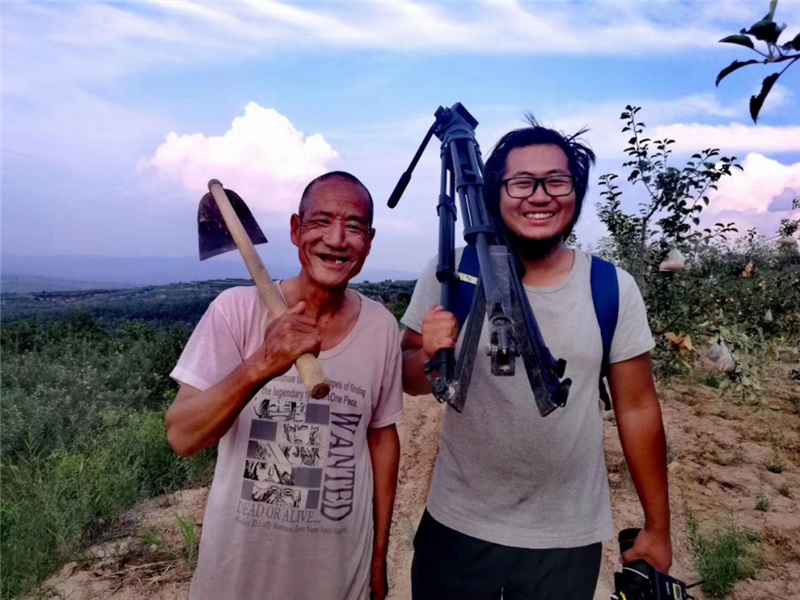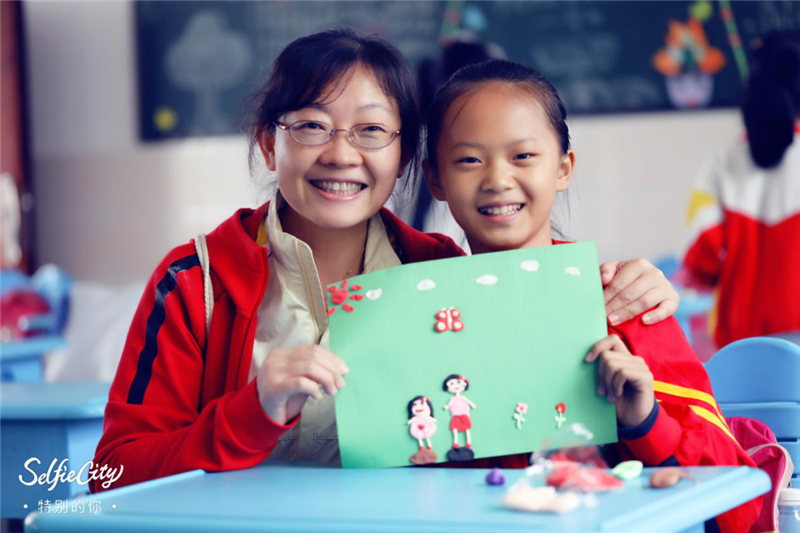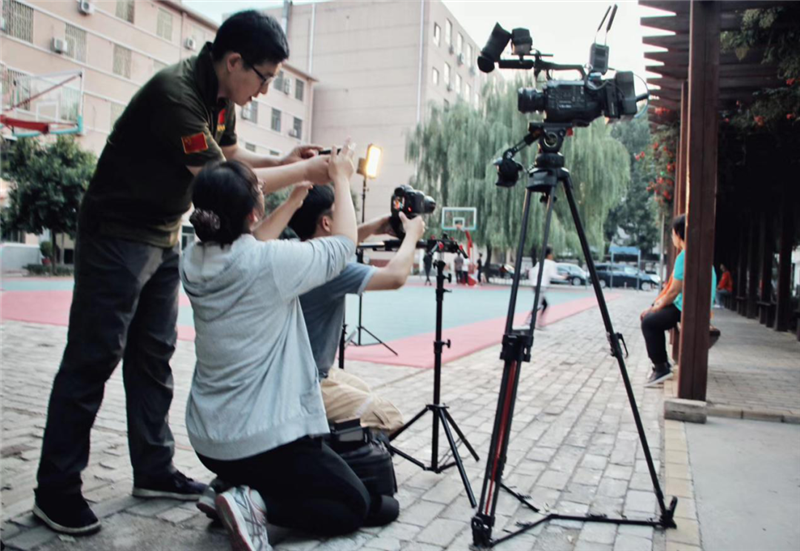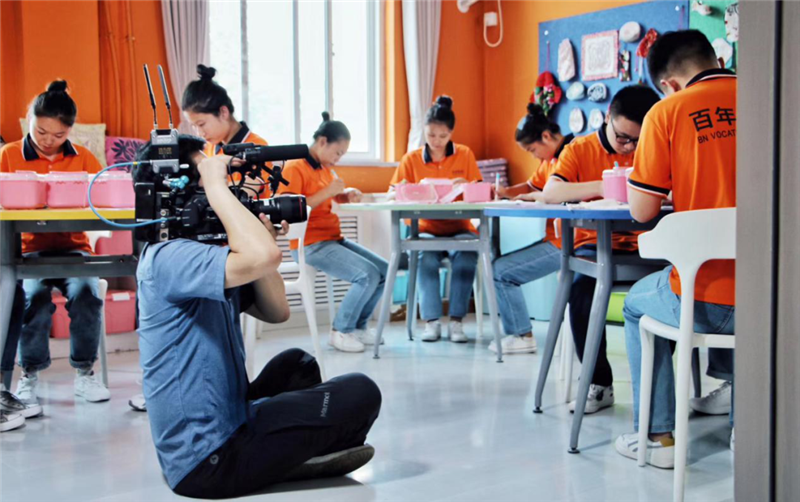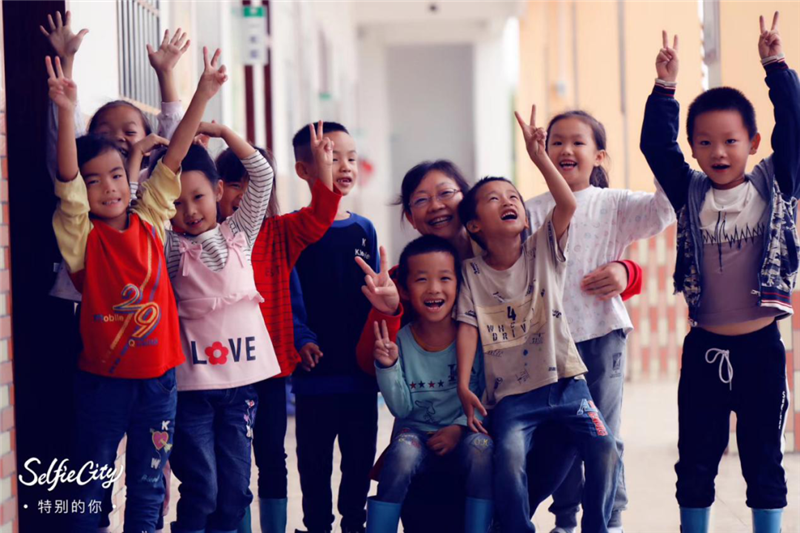2020-08-07
Documentary The Final Battle Against Poverty | Chief Director Yang Xiaoqing: A Living Story Will Nev
Today’s China has written the most successful poverty alleviation story – in more than 40 years since the reform and opening up, more than 800,000,000 people have got rid of poverty; more than 10,000,000 people have been reduced from the poverty every year in seven consecutive years since the 18th National Congress of the CPC. “I’m supreme proud of being able to record and witness the great course and the victory moment of the Chinese nation in realizing the dream for thousands of years, and the creation motivation and passion generated thereby will run through my creation and help me to make breakthroughs in my creation.” Yang Xiaoqing, Chief Director of the Documentary series The Final Battle Against Poverty signed with emotions at Seminar on High-Quality Development of Chinese Documentary Films held on this Shanghai TV Festival. For more than one year, Yang Xiaoqing led the production team to visit the former revolutionary base areas, areas with concentrations of ethnic minorities, border areas and areas with relatively high incidences of poverty in over ten provinces, cities and autonomous regions such as Yunnan, Guizhou, Guangxi, Shaanxi, Shandong, Inner Mongolia and Henan and collect a lot of typical cases and touching stories in the front line of poverty alleviation. As the work context became clear gradually and the materials became full gradually, Yang Xiaoqing, who returned to the post production from the field, finally had time to talk about the “tough work” in her creation.
Thoroughly grasp the policy and target the innovation
Before creating The Final Battle Against Poverty, Yang Xiaoqing already had the experience of more than twenty years in the documentary industry and had been working in the vast fields for a long time, and farmers and villages had been the group and field most familiar to her. However, in the face of “tough fight of poverty alleviation” such a magnificent epic theme, Yang Xiaoqing did not feel relaxed at all, “tough fight of poverty alleviation is an extremely hard and bitter but stirring final battle but it is also a silent battle without smoke of gunpowder at the same time. Thousands upon thousands of nameless heroes are selflessly devoted to the front line of poverty alleviation without a bang; instead, they most often silently do one trivial thing after another and sweep every dead corner with their determined efforts. How can they do such weighty work with their spirit and enjoy popular support? It is not easy.”
After several times of thinking, Yang Xiaoqing sorted out three “breakthrough” ideas of “sea, land and air”. “Air means height and represents the macro perspective; sea means depth and refers to the deep media thinking, and land means expression with the most down-to-earth character stories.” She said, “Once with a macro perspective, the audiences can see an amazing age behind the characters, see the pair of hands supporting the destiny of individuals and see the great efforts made by the Party and the state through the changes in the destiny of all the characters expressed in the works so that the audiences will generate the positive energy such as appreciation, national confidence and price, dedication and altruism.”
Yang Xiaoqing disclosed, “The structure of The Final Battle Against Poverty is closely aligned with the poverty alleviation policy and is planned in accordance with the important measures of “a batch in five aspects”. Around the measure “develop the production and make a batch get rid of poverty”, the first episode is the stories of poverty alleviation through industries in the former revolutionary base areas, areas with concentrations of ethnic minorities, border areas and areas with relatively high incidences of poverty of Yunnan and Guizhou; focusing on targeted poverty alleviation and around “help the poor by changing the place, make a batch get rid of poverty through removal” and the measure of poverty alleviation through employment, the second episode is the story of Yellow River Beach moving to another place and the stories such as poverty alleviation workshop, ecological poverty alleviation in Keyouzhong Banner, Inner Mongolia and the e-commerce enabling poverty alleviation of CNHNB.COM helping the apple industry in the former revolutionary base areas; around the measure “make a batch get rid of poverty through education”, the third episode is the story that the young volunteers support education in the primary schools in the poor mountainous areas of Guangxi and BN Vocational School provides the children from rural poor families with the formal vocational education and employment opportunities.”
She emphasized, “We can keep all the selected cases highly consistent with the policy orientation without deviation only by grasping the poverty alleviation policy and spirit thoroughly”. She took the “poverty alleviation through industries” as an example, and there were numerous cases all over the country but the creation team selected to avoid the cases of purely developing the agriculture. Therefore, from the perspective of current situation, it has been difficult for many areas to increase their incomes substantially by only relying on the traditional agriculture, and it is easy for them to fall into the state of low income or poverty, and the present poverty alleviation through industries also advocates that we shall introduce the new ideas, innovate poverty alleviation and rely on the science and technology to develop the characteristic industries and characteristic products and realize the industrial integration when the traditional industries cannot meet poverty alleviation.
Finally, the team selected the stories that Hebian Village in Yunnan established Inn of Mom with the Yao Nationality and the breeding team of Nanjing Agricultural University introduced the ornamental chrysanthemums to Majiang, Guizhou to develop the tourist economy. “Such two cases not only are the typical east-west poverty alleviation cooperation and fixed-point poverty alleviation but also are highly consistent with the ‘innovation’ and ‘sharing’ spirit in the new development concept proposed by the central government.”
Approach the cases without labeling
The team did a lot of field research before starting the shooting but the “accidents” during the shooting often brought some new gains to Yang Xiaoqing as well.
The shooting experience at Jiangkou Primary School in Jiangkou Village, Zhaoping County, Guangxi Province, deeply impressed her. Zhaoping is a national-level poor county but the production team found that the school’s hardware conditions were beyond their imagination after arriving at the school. On campus, there was a three-story teaching building with the new composite blackboards and high-intensity plastic desks and chairs in the classrooms, and there were the complete sports devices such as the basketball stands and the table tennis tables on the playground and a good piano in the music room. However, the scarcity of the teacher resources was a great contrast to the beautiful hardware facilities. There were only 11 teachers in this primary school, and each teacher taught at least two different subjects and could only guarantee the professional teaching level of Chinese and mathematics. There was no English teacher for a long time so most of the students in Grade 6 could not write all of 26 English letters.
After the in-depth understanding, the team found that the faculty of Jiangkou Primary School had been pretty good in Zhaoping County and that in many more remote schools, there were only one to two teachers in a school. Yang Xiaoqing was deeply touched in her heart, “Comparing with the hardware conditions that can be promoted in a short time, the faculty is a problem of poverty alleviation through education in a longer time.” Then, Yang Xiaqing put the great contrast between the complete hardware and the faculty shortage in the work, and she hoped that it could draw more attention to the cultivation of the teachers in poverty alleviation through education. In the third episode, she specially told a story of a volunteer teacher. “When young people in the cities come to the primary schools in the remote mountainous areas, they not only bring the knowledge to the children but also open a window for the children and enable them to see a broader and more wonderful world outside the villages.”
“Poverty alleviation through education is a fundamental solution to stopping the intergenerational poverty, and from the children who are changing, I see the hope for them to get rid of poverty.” For this unexpected gain, Yang Xiaoqing said, the documentary creators should not cling to their own “presuppositions” and label each case. “The literal policies can have the more realistic temperature only through the re-development and re-creation on the scene.”
Seek breakthroughs through deep development
In order to strive to present the fresh stories, more than 80% of the cases selected and presented in The Final Battle Against Poverty are the fresh stories, which are representative and quite innovative. For some other typical stories, Yang Xiaoqing thought, they were reported by the media but the media mostly focused on the news commentary previously and had the similar perspectives, and few of them thoroughly and delicately showed the stories from the unique and novel perspectives in the way of documentary, and after the in-depth development of The Final Battle Against Poverty, they would brought different feelings and reflections to the audiences as well.
Yang Xiaoqing told a story that Professor Li Xiaoyun of China Agricultural University led a team to go deep into Hebian Village, Yunnan and helped the villagers to rebuild the inns to get rid of poverty. This case won “2017 National Innovation Award for Tough fight of poverty alleviation” and attracted a lot of media to stampede and report. However, Yang Xiaqing found the reasons for poverty here were not simple after she led the team to go deep to Hebian Village. “When I shot in Shandong, a local poverty alleviation cadre told me that poverty and idleness were a ‘standard configuration’ but it should be questioned in this village. The villagers in this village worked hard every day. When the dawn was just breaking, they got up to work, and they cut the sugarcanes, fed the pigs and did farm work. Many people got up at five o’clock for rubber tapping, and the women got up at five o’clock to go downhill for part-time jobs until the dark, and they earned RMB one hundred a day. However, there was no rich family and no decent house in the village. Were they poor entirely because they were lazy?” With this question, Yang Xiaoqing continued to develop the reasons and finally found that they fell into a “poverty trap”. “They were a group of people who severely left behind during the several decades of rapid economic development in China, and it was difficult for them to get rid of poverty only by relying on themselves and the traditional industries. At this moment, the involvement of the outside assistance power was required to open this breakthrough with the innovative ideas.”
In another case winning the “Innovation Award” – “Poverty Workshop” in Dongkou Town, Shandong Province, Yang Xiaoqing truly reflected the group image of life of local people and also showed the imagination about the future of the young people in the small town from the perspective of how to help the poor people to find jobs in the neighborhood and in the local place to enable the destiny of each individual to shine brightly in this great age.
Transmit great love through salutary influence of education
Nine years ago, Yang Xiaoqing, as one of the core creators, participated in the shooting of the first season of A Bite of China, and the blending of Chinese food and the Chinese human relations presented in this film fascinated many audiences, and they enjoyed it from then on. Yang Xiaoqing has been good at telling stories in the way of salutary influence of education. After The Final Battle Against Poverty was made to the height and depth, Yang Xiaoqing thought that its final implementation still needed the dedicate, true and full character stories. “There are rich character types and character relations in the whole film, and each story has two groups of characters: the supporting and the supported parties. Comparatively speaking, we focus more on the supported party, that is, the poor people. I hope to show our poverty alleviation achievements through the changes in their own destiny and through their sincere sense of acquisition and sense of happiness.”
Yang Xiaoqing introduced that there was a lot of care for the individual emotions in this documentary. For example, an old man hard to leave his hometown in the removal of Yellow River Beach to another place, “Many people in the cities cannot understand why he is not willing to move now that the government has helped him to build a new house.”; and a rural woman restrained by the traditional concept, “She would hurry to hide the children when she saw the outlanders previously because she thought that they came to steal the children but she has opened the first restaurant in the village now.”
All the stories happened in the villages but according to Yang Xiaoqing, it is also a documentary for the “people in the cities”. For example, the case of BN Vocational School reflecting poverty alleviation through education, “The children graduating from these schools have finally worked in the cities and have served the people in the cities. They may the waiters, delivery men and take-put personnel making contact with you every day, and the people who live in the big cities will be touched by their stories.” At the same time, the agritainment and ecological tourism rising vigorously in these years have also made the people in the cities have different understandings and yearnings for the new villages. Yang Xiaoqing disclosed that there would be the discussion on how to break urban and rural gaps in The Final Battle Against Poverty to make the people in the cities aware that the “tough fight of poverty alleviation” has originally changed their own life silently.
“Therefore, at the end, I understood the poverty alleviation as a condensation of great love and a condensation of selfless dedications of thousands upon thousands of people. We hope to transmit such great love in this expression way of salutary influence of education with our work, and it is also the value of this work.”
Record the present without a full stop
The thickness of a documentary comes from time and space to a great degree, and confirmation of the changes in the destiny of the characters needs time. The greatest difficulty brought to Yang Xiaoqing by The Final Battle Against Poverty is that the team cannot follow a story through the year or shoot it in different stage but only can record the present to the greatest extent.
In 2017, poverty alleviation of Hebian Village achieved the initial success. However, When Yang Xiaoqing led the team to approach this “demonstration village” again, they found that the villagers had new puzzles. The villagers became dependent as Professor Li Xiaoyun’s team did the assistance work “too comprehensively”. “Someday, when this team leaves this village and after the villagers throw the crutch, can they keep their feet and continue? Will they return to poverty? At the time of being aware of it, the poverty alleviation team should gradually attempt letting go and make the villagers able to continue, and they will have the continuous future in this way.” At the end of this case, Yang Xiaoqing recorded the labor pains and efforts experienced by the supporting and the supported parties to “let go”. “Therefore, the creators will not end a story easily when they have the in-depth thinking, and it will certainly leave the audiences the aftertaste space and make the audiences continue with their own reflections.”
In addition, Yang Xiaoqing also gave up the “connections” of many stories due to the limited length. Before Hebian Village built the inns, the village once sold the local special product “Rainforest Eggs” to the big cities such as Beijing and Shanghai with the help of the e-commerce channel, and the demands increased very quickly but there was something wrong with the supply side. “If the villagers wanted to realize the mass production, they had to drive down the hens flying to the trees to expand the feeding scale but there would be a problem of fowl plague so this exploration was unsuccessful finally.” Yang Xiaoqing said that this story could not be presented in the work finally but she thought it was necessary to share it because it explained that the tough fight of poverty alleviation was a process of continuous explorations and error corrections instead of being accomplished in an action.”
This documentary can only record the present to the greatest extent but it can also show the sense of course of the character’s life. “I encountered with a case of a disabled person starting the business when I went Poverty Workshop, and he told me that the workers in the workshop were mainly the unemployed old people and women who had no technology background at all and that operating loss was caused to the workshop during the first two years due to a lot of reworking and repair problems but the workshop started to make money after the workers were very skilled and the production was on track.” Yang Xiaoqing said that in the same period, all the people were running on their own different paths for chasing dreams, which also intangibly extended the “time” and “space” of the work.
“Secretary General Xi said that getting rid of poverty was a starting point of new life and new struggle instead of a destination. I also believe that such ordinary characters concerned in our camera will certainly keep continuing the new struggle stories on their path for chasing a good life.”

